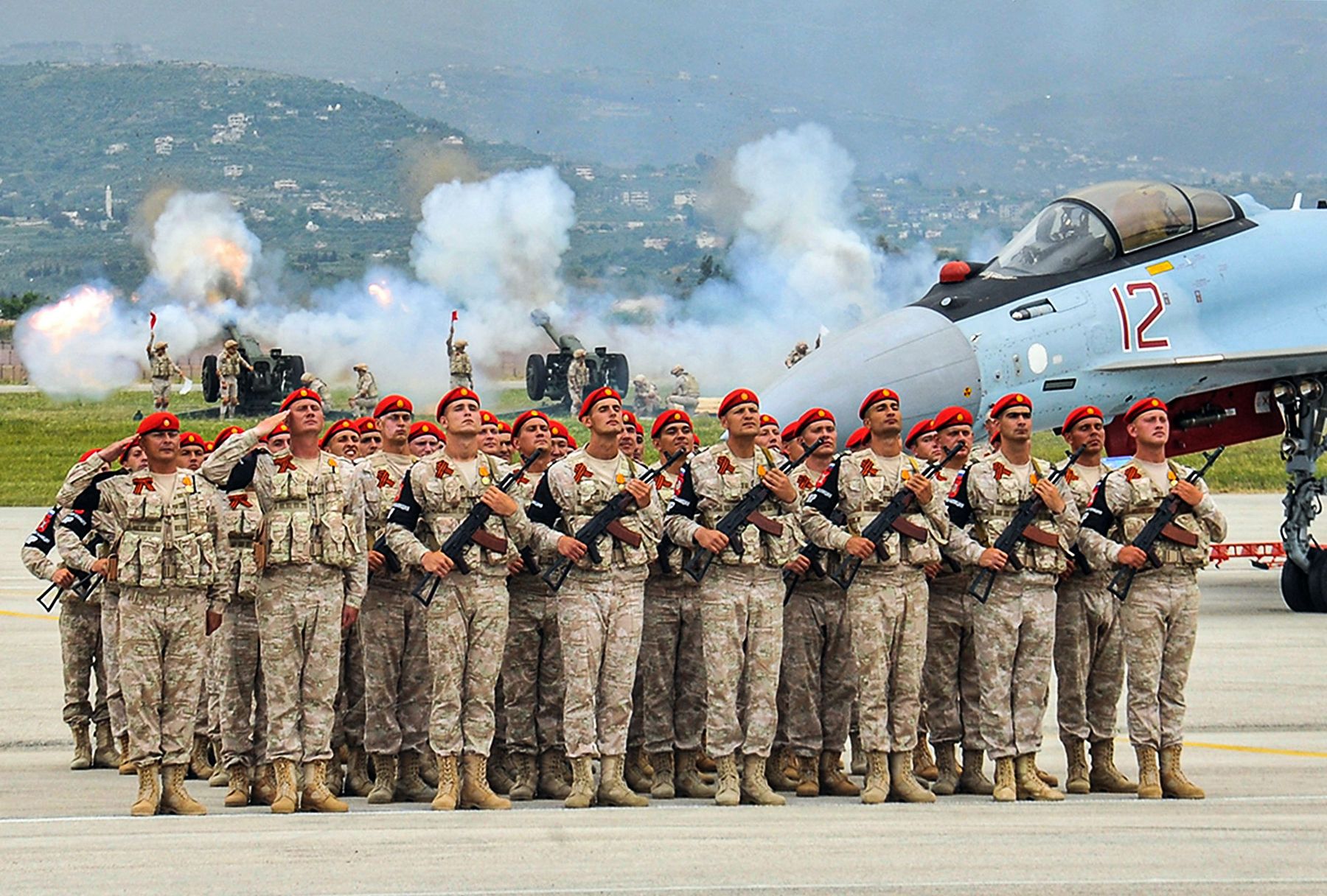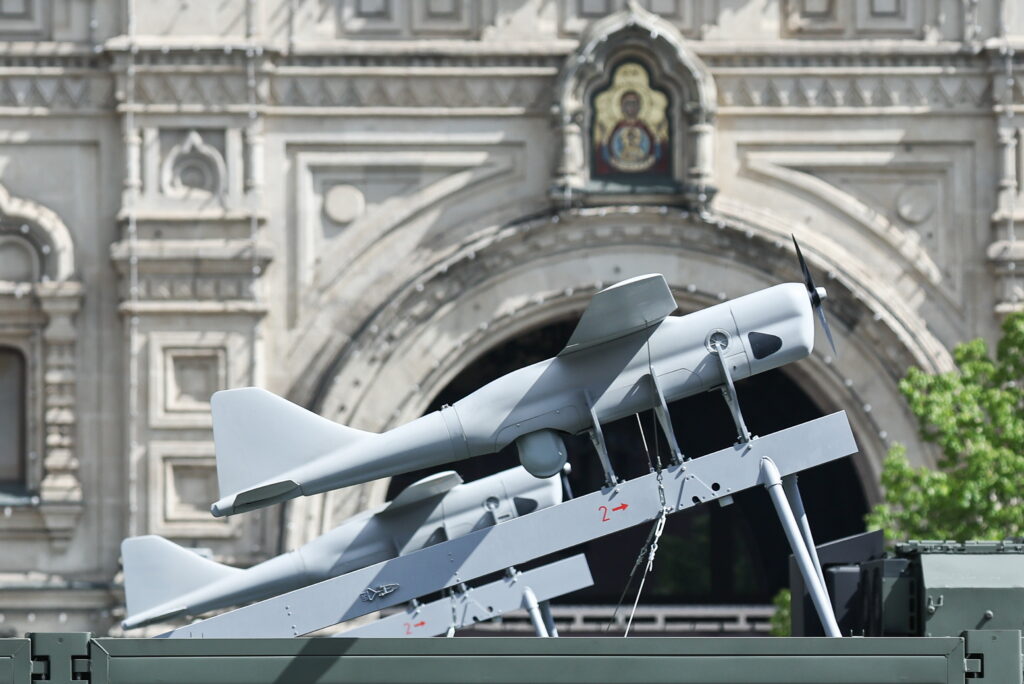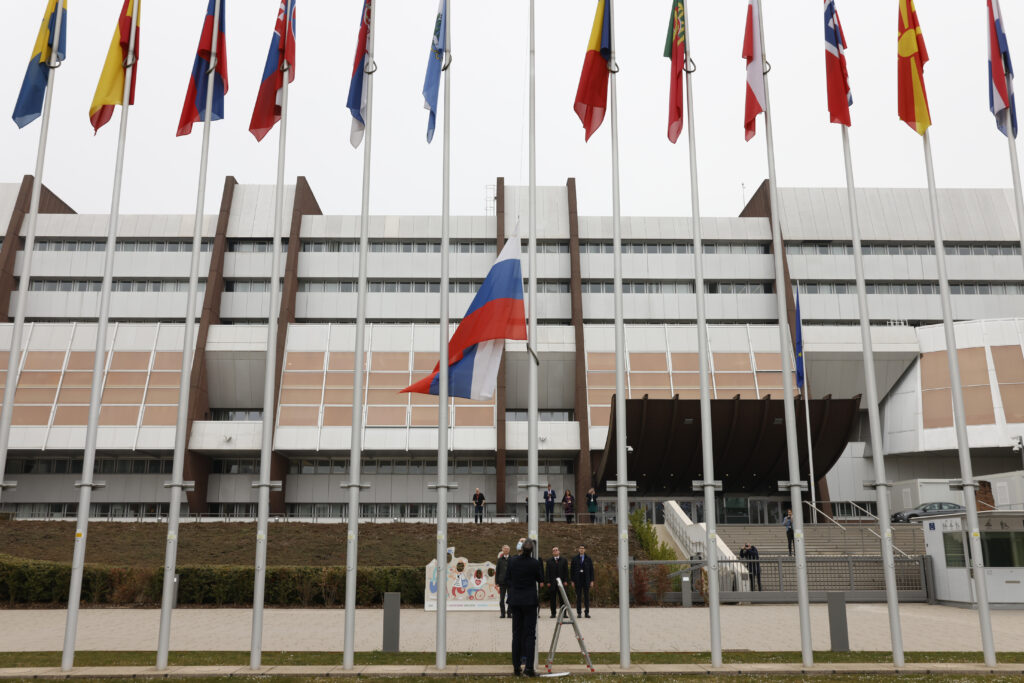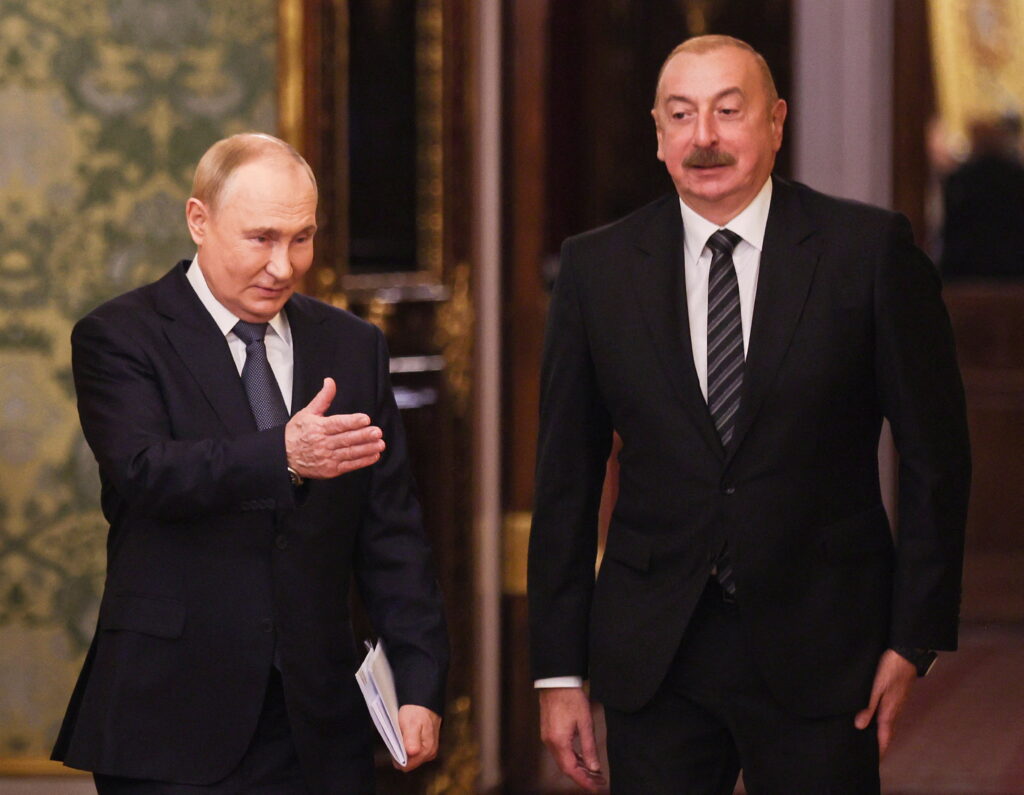It has been commonly believed that Russia’s return to the Middle East was due to the Syrian military campaign. It allowed it to demonstrate strength and impose the rules on the countries of the region, which were already eager to cooperate and sought to diversify their contacts due to the existing issues with the USA.
Moscow did indeed exploit the fatigue of regional and extra-regional players caused by the Syrian conflict, where their interests and positions prevented them from building a strong opposition to Assad. Moscow acted in a moment of crisis with faltering opponents, and made up for the lack of economic and military power in the region by creating a chain of alliances to promote multipolarity as the preferred model of the world order. However, Moscow’s return to the Middle East and then to Africa was not because Russia had patiently waited for an opportune moment to assert itself as a player without whom, as Putin noted back in 2003, no global or regional problem could be solved. Intervening in the Syrian conflict and then turning Syria into a hub for projecting its power into Libya and Africa would have been impossible without the Ukrainian crisis, which raised a number of questions for the Kremlin: how to prevent the country from associating with a defensive «besieged fortress» and engaging in the global competition? How to achieve a dialogue on an equal footing with the West despite the sanctions and to promote its interests in the UN voting (the 54 African members of the UN represent almost a third of the total number of votes in the General Assembly)?
Seeking to overcome the consequences of the Crimea and Donbass events, the Russian authorities have refocused their efforts and finally made sense of their Middle East policy: they chose a flexible policy where the main driver is the export of security services, involving mercenary groups that have already gained combat experience in Ukraine. This approach is understandable/important for authoritarian leaders to stabilise their position and is not tied to human rights or economic liberalisation. However, as much as such an emphasis is stimulating, it is also limited with regard to the timing of impact, and the Russian leaders are now held hostage to that approach until they can figure out how to reap dividends and further entrench themselves in the region, but without becoming embroiled in one crisis or another.
After Russia began to «return to the Middle East,» where it had to deal with numerous non-state and quasi-state structures, Moscow was forced to resort to «parallel diplomacy» because the official agencies tasked with conducting foreign policy were unable to deal with their tasks effectively. Therefore, Ramzan Kadyrov’s Muslim team and forces allied to him were brought to settle the conflict, and Prigozhin’s mercenaries were brought to engage in combat. Naturally, this approach should be overseen not by the Foreign Ministry, but by the special services in the special operation format.
It is no secret that Russia’s actions in the oil and gas market, in particular in projects run with Turkey, Iraqi Kurdistan and Lebanon, are always more politically than economically driven. However, the notion that Russia’s position is always strategically fine-tuned and precise is nothing more than a myth persistently nurtured by propaganda. In the absence of regime change, the Kremlin is not held liable for its decisions in the next political election cycle. This is why it can afford to delegate the power to fight overseas to mercenary structures and engage economic companies to do business with non-transparent benefit schemes and, correspondingly, grey schemes without tax payments, etc. This is exactly the formula for the famous «consistent» policy in the Middle East: reactionary decisions are cemented by other reactionary decisions while creating the appearance of a deeply personalised political strategy. Putin’s role manifests itself not only in assessing the level of play of the main team and the bench of back-up players, but also in directly hand-picking the team and determining who will go to the field and when. The combined role of a referee and head coach cannot but affect the chain of command: it is constantly under stress as it is doomed to adjust to the decisions of the «chief above the fray» and to change course frequently, already following the former direction due to inertia.
The Islamic dimension
Russia’s current Middle East policy needs to be viewed in the light of Moscow’s current attitude towards Islam and the Islamic world as a whole. However, the problem is the same here: periods of Kremlin’s activity in this area are associated with conflicts and the task of smoothing out sharp angles with the leading Islamic states.
Thus, the first period of Russia’s rapprochement with the Islamic world fell during the second Chechen campaign. It was during this period that Vladimir Putin spoke at the summit of the Organisation of Islamic Cooperation and that Russia received the observer status in the OIC. The Russian president paid his first visit to Saudi Arabia also during that period. Nevertheless, Moscow failed to consolidate its cooperation with the Islamic world and make it credible.
The second attempt at rapprochement between Russia and the Islamic world can be observed at present. It was the result of a confrontation with anti-Assad forces, many of whom held Islamic beliefs. In this case we can talk of a certain institutionalisation of Russia’s return to the Middle East. In particular, it has already enabled Russia to launch the Astana format of talks with Iran and Turkey and to take its relations with Saudi Arabia, Egypt and the UAE, which are interested in containing Turkey in Syria and Libya, to a new stage of interaction.
The Chechen syndrome
Although the Chechen campaign was a trigger for Moscow to develop relations with Middle Eastern countries, the «Chechen syndrome» still weighs on Moscow’s relations with many Middle Eastern state and non-state actors.
For this reason, Moscow still looks at various Islamic forces, commonly referred to as «Islamist,» through this very prism: it sees those forces as potential «sponsors» of an internal mutiny in the Russian Federation, potentially involving Russian Muslims.
However, this approach could be very different if Moscow were to move away from the Islamophobia that has become rooted in the Russian political system due to its negative experience of relations with the Islamic world. Despite the official position, which denies such an approach, this line cannot always be concealed. At times, it also manifests itself in Kremlin’s rhetoric.
Of course, Moscow has demonstrated its readiness for some degree of pragmatism. This applies to its links and contacts with Cairo during the rule of the Freedom and Justice Party and the Morsi’s administration, as well as with Sudanese ex-President Omar al-Bashir, directly linked to the Sudanese Islamists and Palestinian Hamas, whose representatives have been visiting Moscow since 2006. The invitation of Hamas representatives to Moscow in 2006 was, quite predictably, perceived in the West as the beginning of Russia’s return to big politics. At the same time, active Chechen fighters at the time expressed their dissatisfaction that «the Mujahideen of Palestine, brothers of the Chechens, decided to shake hands with Putin.» In reality, the Kremlin at the time did not implement any «multi-track approach»: Vladimir Putin did what he is still doing today: he played around with controversy and demonstrated his independence to the partners in the «Middle East Quartet»: the EU, UN and USA (Putin called the election victory of Hamas «a strong blow» to Washington’s peacekeeping efforts in the Middle East and invited its representatives to Moscow nine days later). Since that time, Russian diplomats have had to do some fancy footwork in every interview to explain how Hamas, which emerged from the Muslim Brotherhood, banned in Russia in 2003, could visit the Russian capital several years later, and why the Russian Federation had still not recognised Hamas as terrorists (the official reason is because the movement does not threaten Russians).
Nevertheless, when choosing between politicians with an Islamic orientation or activists who only need to declare their secularism and declare their fight against any manifestations of Islamism, the latter came out as winners. As soon as such activists declare such a position, Moscow’s vector will change, often in a reactive manner and without a clear-cut position.
This kind of approach is characteristic not only of Russia but also, to a certain extent, of France. The Libyan warlord Haftar actively leveraged this, pushing an anti-Islamist agenda and saying what Moscow and Paris wanted him to say. At the same time, his anti-Islamist slogans were mostly aimed outwards whereas on the internal arena he used a fairly fundamentalist Islamic approach, receiving instructions from radical Salafist preachers and having Salafist formations in his army. Nevertheless, the very fact of publicly acknowledging his own secularism and declaratory calls to fight Islamism may be enough to become a Kremlin’s favourite.
As a result, Moscow confronts a wide cross-section of political forces in the Middle East that hold a moderate Islamic stance. The Russian authorities occasionally have to deal and negotiate with them, but they continue to keep «a rock behind their backs» and conduct a discrediting campaign in the Russian media, which are often confused about how to cover a round of negotiations between Russian officials and those Middle Eastern politicians who were described as «non-handshakeable» only yesterday. At the same time, these forces might be interested in long-term cooperation (for example, the Ya Biladi Party and figures such as Nuri Abusahmain, Salahuddin Al-Namroush or Osama al-Juweili in Libya, the Al-Islah Party in Yemen, Muqtada al-Sadr and his supporters in Iraq, Al-Nahda in Tunisia, etc.) if the Russian side was not afraid to bet on them under certain conditions and build a truly effective, rather than spectacular, vector of its Middle Eastern policy.
Balance
Russia would have had the opportunity to become one of the centres of the Islamic world long ago if the elite and propaganda did not overemphasise the Orthodox profile of the Russian state and the «state-forming people.» Although Muslims represent a minority in Russia, they are still too significant to ignore. In this sense, emotional publications and statements made by Russian politicians often set the Muslim peoples of the Russian Federation in opposition to the «titular nation,» which is not only incorrect but also dangerous in such a multiconfessional country. And this is done despite the fact that the Russian authorities have been going through a storm in recent decades in their search for «ideological fastening»: from controversial ideas originating from philosophers (Ilyin, Solovyov, Berdyaev), studied even by governors, to the idea of promoting the «Russian world,» which became marginal after Donbass. But even an emphasis on Orthodoxy (with a real interest in developing relationships and painstaking work) would hardly prevent the promotion of the ideology of «Russian political Islam,» which could attract numerous followers in the Middle East and even have its own parties and movements acting in the interests of the Russian Federation in the Islamic sector of that region.
This is based on Russia’s existing Islamic reformist traditions (Jadidism as the Russian version of the renewal movement within Islam) and the long history of Russia’s relations with the Islamic world: after all, many Muslims still perceived Russia as a party capable of acting on behalf of Muslims. Suffice it to recall the repeated requests of the Sultanate of Aceh in Sumatra in the late 19th century asking the Russian Empire to accept it as a subject, which shows that many Muslims saw the «Russian Padishah» as the ruler of the Muslims. At that time, Sankt Petersburg tried to position itself in this way among the Islamic world, although this work did not acquire any visible outline.
At present, Moscow has sufficient resources, including intellectual ones, to formulate and articulate such an ideology. This could considerably broaden Moscow’s frontline in the Middle East instead of having to constantly assert itself as the sole defender of secular authoritarian regimes, whose political future is generally predetermined. The alternative to them lies in sensible political forces that adhere to the ideology of moderate political Islam and are far from radicalism. Many of them openly declare their readiness to develop and strengthen ties with Russia and see Moscow as a counterweight to the USA and its allies in the region. Therefore, it is not in Moscow’s interest to alienate such forces and to follow stereotypes that fail to address the challenges of the times.
Despite its obvious geopolitical benefits, the Russian intervention in the Syrian conflict has not given significant dividends to Moscow. Its excessive preoccupation with the idea to support the Syrian regime and the actual formalisation of a military alliance with Shiites in Iran, which also prefers to walk the thin line between war and peace, has narrowed Russia’s corridor for manoeuvre in the Middle East. Because of its stereotypical thinking, Russia has failed to draw a line that should not have been crossed in relations with Assad.
In 2015, Moscow had an opportunity to distance itself from Damascus and not to «blend in» with the Syrian regime. Moscow could have focused on the officially declared goal of the military operation in the Syrian Arab Republic, i.e. to fight against the «Islamic State,» banned in the Russian Federation, and to contain the offensive potential of Jabhat al-Nusra (currently: Hay’at Tahrir al-Sham, an organisation banned in the Russian Federation). In 2015, the Syrian opposition did not intend to side with Turkey and fight for its interests in the Syrian border region. Instead of faking it, Moscow could have played the role of moderator in the civil war, striking real terrorist cells and inducing Assad to make compromises. Assad would have agreed to a Russian military presence in such a format anyway.
Under such conditions, Moscow would probably have been able to gradually «tame» the Syrian regime and tear it away from Iran, launch a full-fledged peace process and attract significant investments into the country: Russian companies would also have been able to get involved without the fear of falling under Western sanctions. Moreover, Russia would have retained its position and credibility among an entire array of forces represented in the Middle East. And, most importantly, this scenario would exclude the possibility of an «Afghanisation» of the conflict and save money needed to intervene in the war.
An attempt at self-correction
In contrast to its involvement in Syria, Moscow’s policy on the Libyan track is more nuanced, precisely because the authorities clearly realised that they were overly engaged on Assad’s side in the Syrian conflict. The rules of the game and the balance of powers are different in the former Jamahiriya, and Russia, while engaging in this conflict as well, still managed to maintain full-fledged relations with all parties. Russia’s refusal to provide direct military assistance to Haftar and its use of private military contractors for this purpose can be considered a positive experience that has proven right. In this way, Moscow was able to gain a foothold in Libya and has further opportunities to establish itself there by signing agreements with the new authorities to establish full-fledged military bases on Libyan territory.
Of course, mistakes were made in the past also in this area. The decision to focus initially on Haftar was hasty, but the Russian side managed to find a counterweight through the new «favourites» with much greater legitimacy. At the same time, there were options for the deployment of Russian private military companies in Libya without getting them involved in military operations: they could have been used to support oil production, protect oil and gas pipelines and act in the interests of both sides of the conflict in the fight against terrorism (a real one rather than the one described by Haftar), for example, by working in coordination with the National Oil Corporation. Moreover, Moscow initially had opportunities for dialogue with the USA since Washington directly supported both Haftar’s forces and the opposing Libya Dawn coalition and Bunyan al-Marsous command in their anti-terrorist activities during the second civil war in Libya (after 2014).
In the Yemeni settlement process, Moscow has been unable to unlock its potential so far, which demonstrates the difficulty faced by Russian diplomacy when playing the role of «pure mediator,» without siding with one of the warring camps in the conflict. Nevertheless, Moscow still has opportunities to begin to play a more active role in the Yemeni peace process by leveraging its connections with the warring parties. For example, Russia could seek to engage more closely with Yemen’s al-Islah party, as President Mansour Hadi largely has to rely on it. The organisation of talks between al-Islah and the Ansar Allah (Hussites) on the Russian platform could accelerate the search for a compromise solution and enable Moscow to obtain certain guarantees that its interests in Yemen will be taken into account.
A single recommendation
As the successor of the USSR, Russia has a unique opportunity: it is capable of simultaneously and quite officially conducting a dialogue with the warring parties: today with Israel and Iran, tomorrow with the USA and Hezbollah, and with Turkey and the Kurdish Democratic Union Party on another day. At the same time, Moscow does not have the Soviet economic power to have a plethora of movements fostered and fighting for certain ideals, or to impose mediated dialogue between the parties on its own terms and to withstand competition. Therefore, the Kremlin is forced to become embroiled in Middle East military conflicts, losing its status as an independent negotiator. The experience of unsuccessful search for allies among regimes and constant mentoring attempts is the main obstacle preventing Moscow from developing relations with the countries of the Middle East and North Africa in a notoriously multipolar world. The militarised foreign policy and search for an external enemy to consolidate the current system preclude Russian companies from participating in «politics-free projects»: Russian diplomats are well aware that many Russian economic projects in the Middle East and North Africa have been derailed not because of Washington’s wrench in the works, but at the fault of Russian politicians and businessmen. What counts for Moscow is the red carpet treatment and the praise, with Realpolitik falling behind.
The time has come for Moscow to abandon the Soviet paradigm of Middle Eastern politics, where bloc confrontation was seen as central. Another thing to reconsider is the official reliance on secularism as the main indicator of the «sanity» of political forces in the Middle East while the range of regional contacts should be broadened without resorting to sabre-rattling. However, given the policy that suppresses dissent and freedom of information within Russia, it is highly doubtful that Moscow is ready to engage in such rebalancing.
*This article is part of the ‘Reforms’ series prepared by Riddle in partnership with Reforum project.










